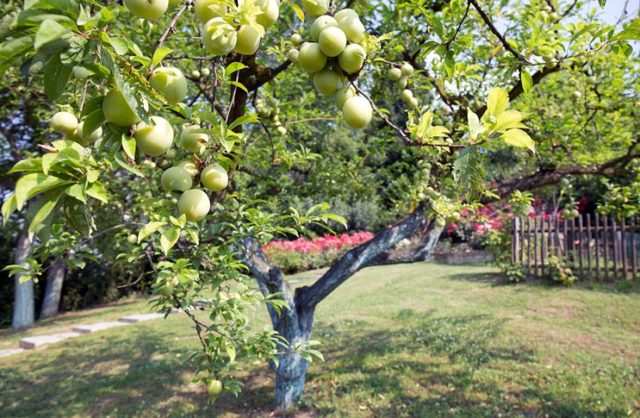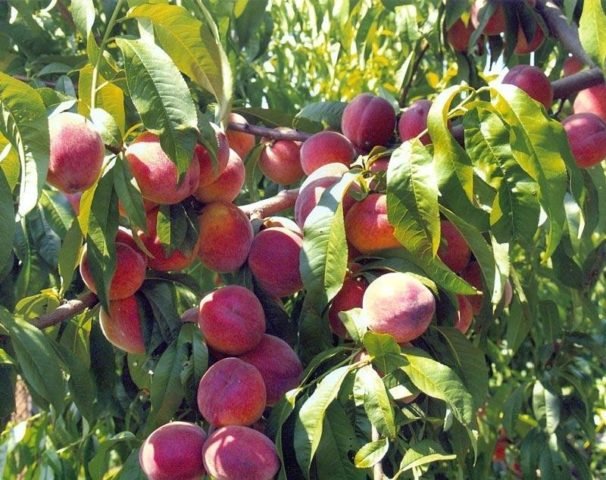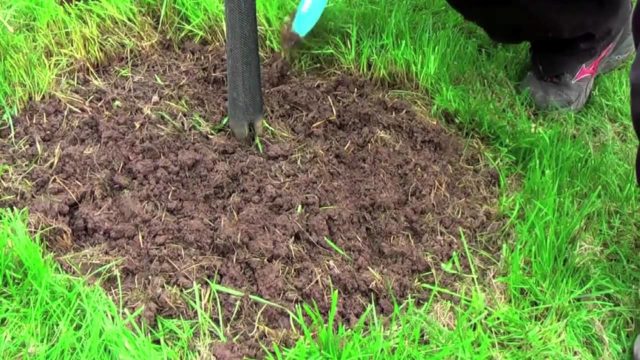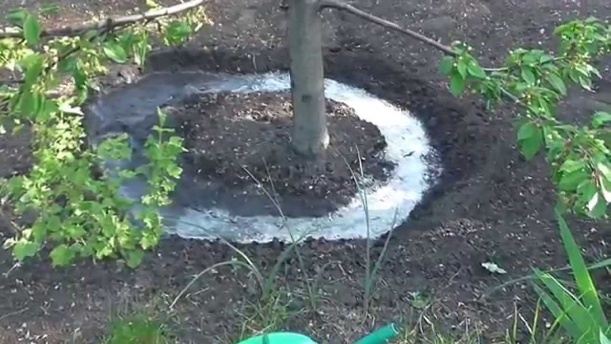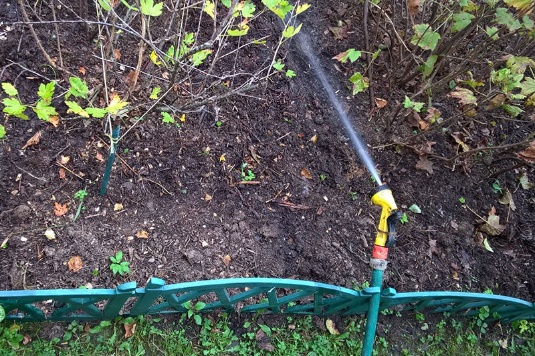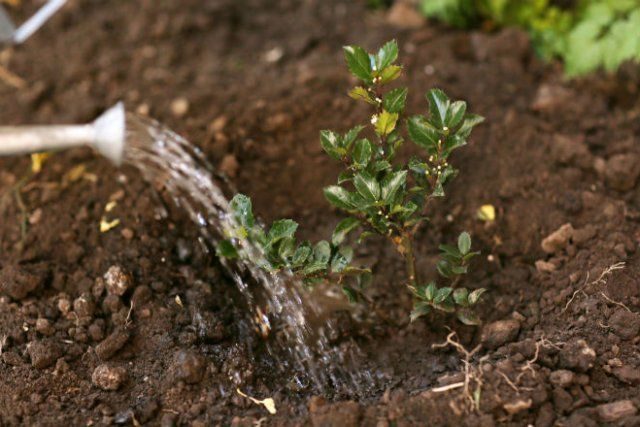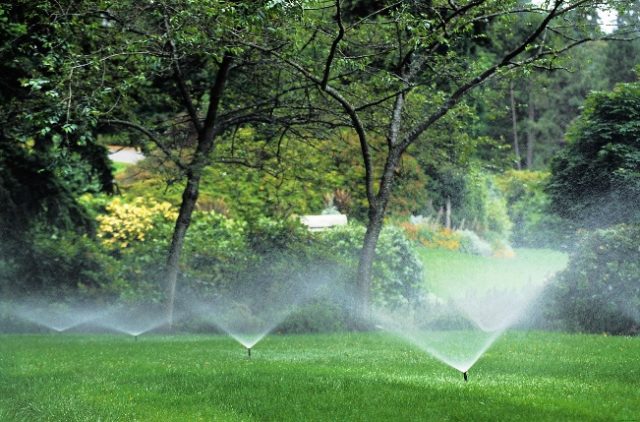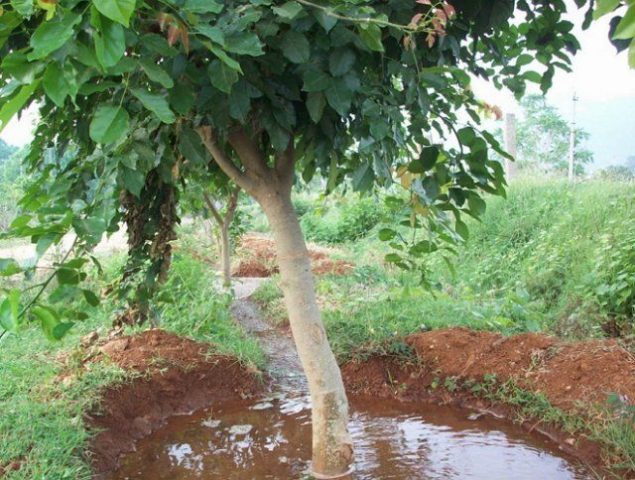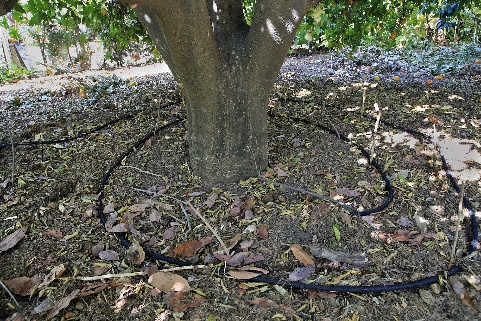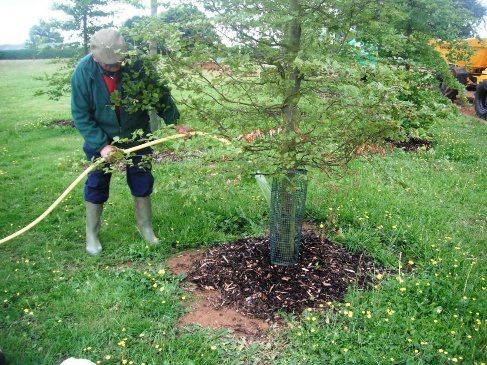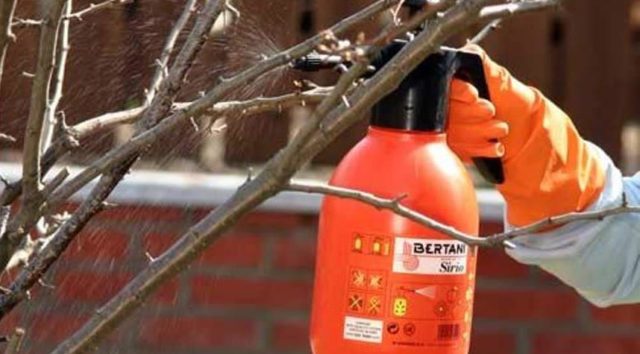Content
After harvesting, it may seem like there is nothing to do in the garden until next spring. The trees shed their foliage and hibernate, the beds in the garden are cleared. Winter is coming - rest time and garden maintenance is not required. But caring for fruit trees in the fall takes all the gardener's time until winter. Gardening is not necessary every day, but all three months before the onset of winter.
How to care for fruit trees in the fall
Autumn care fruit trees begin almost in August. The plant must have time to prepare for wintering, and for this it needs to be harvested. While the fruits are hanging on the tree, the processes of preparing for the winter are not started. If the climate permits, the process of caring for fruit crops can be distributed monthly. If the garden is large, then this distribution will be optimal.
September
Procedures to be done in September:
- remove the crop;
- remove trapping belts from the trunks;
- collect all the carrion from the ground;
- carry out sanitary pruning;
- spill the trunks with a solution of potassium permanganate;
- treat tree trunks with copper chloride.
By autumn, the fruits remain only on apple and pear trees, but it is also advisable to remove them before September 10. Late-ripening apple varieties can be removed by the end of the month, then all the care procedures will have to be carried out a little later. The time between gardening works will need to be compacted, but in the northern regions it is often necessary to do everything almost at the same time in order to finish caring for fruit crops by mid-October.
Trapping belts against ants and other flightless pests are removed, since insects are already beginning to hibernate, and protection will interfere with the care of tree trunks. They pick up the carrion from the ground. Mold spores from rotting fruit can get on the tree and cause fruit rot the next year.
During the period when the trees are preparing for wintering, but the foliage has not yet fallen, drying and diseased branches are clearly visible. After the general "cleaning" of the garden, sanitary pruning is done. There are two opposing positions regarding autumn formative pruning. Some gardeners believe that everything should be postponed until spring. Others are convinced that autumn is the best time to form a crown and remove excess shoots. But formative pruning and crown thinning is best done after leaf fall, when all the shoots are clearly visible and you do not have to wade through the foliage.
Fight disease
Two subsequent care operations serve this purpose. A simple way to reduce the likelihood of gum leakage in plums, cherries, cherries and apricots is to shed the trunks of these fruit trees in the fall with a solution of potassium permanganate. For each tree you need to spend 3 buckets of medium strength mortar.
Treatment of trunks from fungal diseases in September is carried out using copper oxychloride. In stores, it can be sold under various brand names. If the month is warm, insects can still be awake at this time, and the foliage will cover the branches from the chemical, therefore, only the trunks of fruit trees are treated in September.
It is too early to peel off the exfoliated bark in September. Moreover, it does not help if the fruit tree is infected with a fungus.Copper oxychloride is diluted according to the instructions and sprayed on the trunks, paying special attention to suspicious crevices. On this, caring for fruit trees in September can be considered complete.
October
Month of the main stage for caring for fruit trees in the fall in preparation for winter. Spend this month
- foliage cleaning;
- digging up the earth;
- feeding fruit trees;
- spraying against pests;
- pre-winter watering;
- make protection from sunburn.
After the leaves fall off, they are raked into a heap and burned. In most cases, the foliage of fruit crops is contaminated with pathogens and should not be left on compost.
Digging up the soil will improve moisture permeability and allow frost to destroy pests buried in the ground. Dig up the whole garden or only the trunks of fruit trees.
Fertilizing will allow trees to "recover" the cost of fruit production. After leaf fall, it is better to process the trees again from pests and fungi. At this time, not only trunks, but also branches can be processed. The main treatment at this time is carried out against pests that have climbed into the shelter. But since the branches from the fungus were not treated, the fungus is also destroyed at the same time.
Pre-winter watering is done before the onset of cold weather, around the end of October. But you should be guided by the climate and weather forecast. If the watering was insufficient or the cold snap came suddenly, it is advisable to treat the trees with lime to prevent sunburn.
November
At the end of October and the beginning of November, heat-loving fruit trees are already warmed for the winter and they are protected from rodents, if required. Additionally, trees protect against sunburn.
Autumn watering of fruit trees
In parallel with preparing for winter, watering of fruit trees is mandatory. Sometimes it may seem that fruit crops need watering only once before wintering. In reality, this is not the case.
During the productive period, the fruit tree needs a lot of moisture, which is why the roots work in pump mode. Watering fruit trees is also necessary in the summer, while fruits are ripening on them. In autumn, after harvesting, it is necessary to restore the water balance of the plant itself. If it rained almost every day in the summer, you don't have to worry that the tree does not have enough moisture. In all other cases, watering will be necessary.
Do fruit trees need to be watered in autumn
There is a popular expression "freezing". This is how they dried clothes on the street during the absence of electric dryers. The moisture in the washed laundry froze, and then slowly evaporated. Due to the low humidity in the frosty air, the laundry dries out very quickly. On rainy autumn days, the drying process took much longer. The freezing effect is present in the freezer if you put open food in it.
Fruit trees are no exception; moisture also evaporates from them in frosts. Lack of moisture will affect the spring. Therefore, before the cold weather, it is necessary to have time to saturate the plants with sufficient water.
Also, in the fall, flower and growth buds are laid, which also require moisture for full development. The third reason for abundant pre-winter watering of fruit trees is sunburn. Most often they occur on sunny frosty days, if there was poor watering in the fall. The only time you need to be careful with watering is in high groundwater.
Terms of autumn watering of fruit trees
In the fall, watering of fruit crops is included in the "compulsory program" for tree care. The timing and amount of consumed water depends on the weather conditions of the current year. If the year is rainy, the amount of irrigation and the amount of water consumed are reduced. In a dry year, watering is carried out more often, and the volume of water is increased. In the extreme dry summer, watering is carried out once a week.In this case, moisture under the tree should flow 3-4 hours. The pressure is regulated so that the water does not pour out of the near-trunk circle, but does not have time to be absorbed immediately. In Russia, such a drought happens very rarely, so irrigation for half an hour is usually sufficient.
With high-quality watering, the soil under the plant should be soaked to a depth of 1.5 m. The minimum possible depth is 0.7 m. The last indicator is a figure for a region with a thin fertile layer. If the soil is on the sand, there is no point in spilling it deep. The liquid will still go into the sand.
How to determine watering intervals
Since the moisture demand of trees varies even in the same region and depends on the weather in a particular year, the watering intervals have to be determined anew each time. To do this, they dig a hole 0.6 m deep in the middle of the garden and take a handful of earth from its bottom. Watering is not necessary if the soil easily forms into a hard lump. If the soil particles do not stick to each other and the earth crumbles in your hands, the garden needs watering.
There is also a more accurate method for determining the need for watering. A lump of earth taken from the pit is placed on a newspaper or paper napkin:
- the lump left a wet trail - no watering is needed;
- the lump is wet and dense, but left no trace - watering can be carried out by reducing the volume of water by ⅓;
- the earth is dry and crumbles - full watering is required.
Clay soil does not allow water to pass through well, and in this case it is necessary to ensure that excess moisture does not form in the soil. It displaces oxygen from the ground and roots can rot.
Watering rates per plant
When watering, take into account the quality of the soil. If the drainage is poor, the soil is soaked no more than 1 m. The species of wood in this case does not matter. When watering, they are guided by age.
It is better to water less often, but more abundantly. A young tree requires about 40 liters of water. Trees 10-15 years old require 40-70 liters. And old and powerful ones - up to 100 liters of water. This is according to one of the versions. Other gardeners argue that this amount of moisture is not enough for the plant and watering with a hose should last 30 minutes.
Serious droughts in Russia are rare, and for the whole autumn an orchard may need only one watering - pre-winter water charging. The last watering of fruit trees is carried out before winter - at the beginning of November, when the soil is not frozen yet. If earlier cold weather is promised, watering should be carried out before the onset of frost.
How to water fruit trees in autumn
There can be 3 ways of watering trees in autumn, and they often depend on the degree of slope of the site:
- hose or buckets;
- sprinkler;
- drip.
When water is supplied from a hose and a bucket, a significant amount is immediately poured onto the ground. If the area is flat, the liquid remains within the boundaries of the trunk circle.
If you dig grooves to the near-trunk circles on a flat area, you can supply water from a hose to several trees at once.
With an inclined area, this method is not suitable; sprinklers are used. Spraying water allows you to evenly wet the soil, but increases the humidity of the air. This can lead to fungal infections.
The most ineffective is drip irrigation. At first glance, it does not require much work or maintenance of the near-barrel circles: it is enough to lay out the hoses with small holes and turn on the water supply. The hose is laid out in a circle with a diameter equal to the diameter of the crown. In theory, the soil inside the circle should be saturated with moisture. In fact, with this method, the soil does not get wet to the desired depth, even if watering lasts all day.
Pre-winter watering
For greater efficiency, water-charging irrigation is done using buckets or a hose. The importance of pre-winter watering when caring for fruit crops is that it not only saturates the plant with moisture, but also prevents the soil from freezing in the cold.
Often this watering is combined with the last fertilization. To do this, a groove 20 cm deep is dug around the perimeter of the trunk circle, where fertilizers are poured. After that, watering is carried out.
The water rate is the same as usual if the weather is favorable or slightly increased with the expectation of good soil wetting.
When using a hose, the rate is calculated using a 10-liter bucket: the time for which the bucket will be filled is noted.
Preparing fruit trees for winter
In the care of fruit trees, except for watering and processing from pests, insulation for the winter, protection from sunburn and rodents, and the removal of damaged areas in crops prone to gum leakage are also included.
The insulation of the tree can be partial (only the stem) or complete. The southern tree is completely covered in northern latitudes. But in this case, it is necessary to form the crown so that the plant is not too tall.
Before wintering, the tree is examined in search of damaged spots from which "resin" is released. This place is cleaned, disinfected and covered with garden varnish.
Sunburn protection
To protect against sunburn, use whitewash... With autumn care, not just a lime solution is used, but a rather complex composition, the purpose of which is to soften daily temperature drops. The crust obeys the laws of physics, expands when heated during the day and contracts when cooled at night. Because of this, cracks appear on the bark.
The solution is prepared from a mixture of copper sulfate and lime. For old trees, this solution is prepared on the basis of a paste to obtain a viscous jelly. You can also add cow dung and clay to the composition. This whitewash will lay a thick layer on the trunk and serve as a buffer between night and day temperatures.
For seedlings, paste is not used, since the young bark must breathe. For the care of trees, a mixture of clay, lime and cow dung is used, which is diluted with water to the density of sour cream.
Rodent protection
When caring for fruit trees in the fall, you can combine sunburn protection with rodent treatment. To do this, it is enough to add carbolic acid to the whitewashing solution.
Mechanical protection methods are used more often. Already with the onset of frost, tree trunks are wrapped with burlap with roofing felt or spruce paws are tied to the trunks with needles down.
When using roofing material, burlap should be laid between it and the trunk so that the trunk does not sniff. Protection from rodents is made close to the ground and sprinkled with soil, since mice can crawl into very small crevices. Young trees require such care, since rodents prefer soft young bark. Old trees are not interesting to them.
Conclusion
Caring for fruit trees in autumn is a necessary stage in the formation of the future harvest. Neglect of autumn care can result in freezing of trees in the cold season or in a spring outbreak of fungal diseases.
